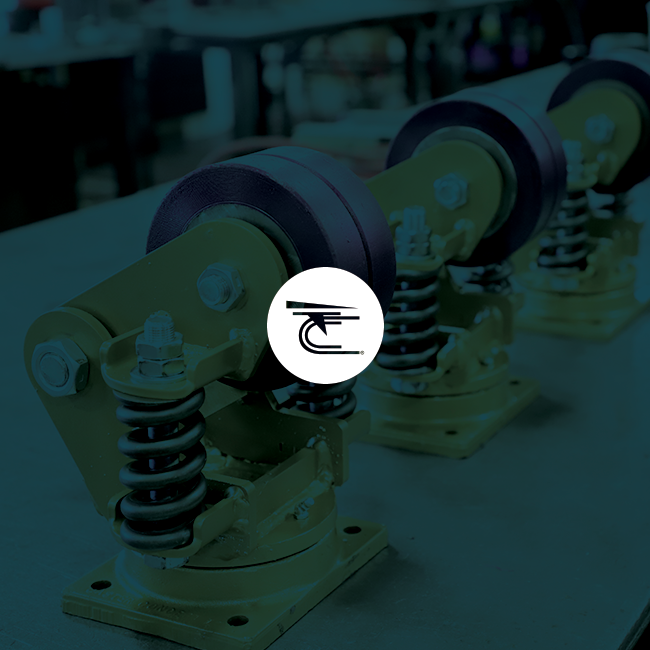

Many of my customers ask me, “what polyurethane would you recommend for this?” This question pops up after discussing the situation based on limited information about the cart/application at hand. The short answer is, It depends.
This is not to say that every poly could work in every application: Rather, depending on the goals and cart usage, details can change from what I initially suggested to you.
First, we need to determine any dimensional requirements important to the cart’s setup. That could be a necessary overall height to consider. Or, a swivel caster that needs to swivel but stay underneath the cart’s footprint so the caster isn’t exposed.
Another factor that comes into play is the capacity rating. Different polys have different properties, which allow the same size wheels to have different weight capacities. Some are soft enough for your fingernail to press into briefly, while others can be hard and mimic a plastic finish. Both, depending on what you are after, could potentially help you accomplish what you need.
The harder the poly, the higher the weight capacity it can hold. One issue when getting into hard poly (70D on the durometer scale) is the potential to flat spot. This happens when heavy loads are stationary for extended periods and the wheel compression is higher than what the material rates for.
A way to get around flat spotting is to go with a larger wheel diameter or width to try and reduce the stress on the polyurethane. If you are limited on the dimensions that make a larger wheel work, I suggest using a softer poly to lower the wheel’s compression value — this allows the wheel to have a chance to “roll out.” (Compression values on hard poly are high, while compression levels on soft poly are low).
So, if a flat spot starts from sitting too long, move the cart around to generate some heat within the polyurethane itself. There is a chance that it will bounce back to its original size and shape.
Lastly, not every application needs to have a polyurethane wheel on it. Polyurethane is a very tough material in most situations. However, with high environmental heat applications or applications that generate heat, the durability of polyurethane will be compromised significantly.